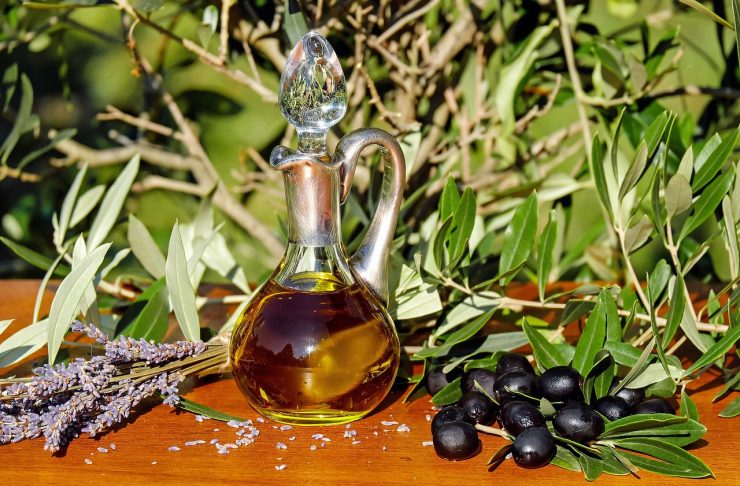When it comes to oils and fats, there’s definitely a divide between the winners and the losers. Let’s start with the losers—processed vegetable oils like corn oil, soybean oil, cottonseed oil, sunflower oil, and canola oil. These oils are linked to all sorts of health issues, from inflammation to DNA damage, and they can even increase the risk of certain cancers. High omega-6 vegetable oils don’t stand a chance here.
The Benefits of Monounsaturated Fats
Now, let’s talk about monounsaturated fatty acids (MUFA), the kind found in olive oil and avocado oil. These are some of the healthiest oils you can use. Unlike the polyunsaturated fats in processed oils, MUFAs are stable for cooking and offer a bunch of health benefits.
MUFAs are great for our cells—they protect DNA, boost energy production in our mitochondria, and help strengthen our cell walls. In fact, MUFAs support immune function, speed up wound healing, and can even help manage autoimmune diseases. Research shows they can lower the risk of breast cancer, especially treatment-resistant types, and improve the effectiveness of chemotherapy.
These fats also improve cholesterol levels, raising HDL (the good kind) and lowering LDL (the bad kind). MUFAs can also prevent LDL from oxidizing, which is important because oxidized LDL sticks to blood vessel walls and can lead to heart disease. In fact, studies show that just two tablespoons of olive oil a day can significantly reduce cholesterol levels, improve the HDL/LDL ratio, and lower blood pressure.
MUFAs are also helpful for diabetes, improving blood sugar control in both type 1 and type 2 diabetes, and reducing insulin resistance—something high omega-6 oils just can’t do. Plus, MUFAs might even help with fat burning—olive oil has been shown to help people lose weight, and both olive and avocado oils are linked to more efficient fat breakdown.
Antioxidants
Olive and avocado oils also pack a punch with antioxidants like chlorophyll, carotenoids, and polyphenols, which have strong free-radical scavenging abilities. These antioxidants help combat chronic diseases like heart disease, cancer, and diabetes.
One antioxidant, oleic acid (the main MUFA in both olive oil and avocado oil), can even help prevent blood clots and reduce blood pressure. So, beyond being a healthy fat, these oils have powerful anti-inflammatory and heart-protective properties.
Olive Oil vs. Avocado Oil
Olives have been around for over 6,000 years, and most olive oil still comes from the Mediterranean, with extra virgin olive oil being the healthiest. The best quality comes from the first cold pressing, which preserves the most nutrients.
Avocados, on the other hand, are native to Central America and are now grown in warm climates worldwide. The oil is a little milder in flavor and has a slightly higher smoke point than olive oil, which makes it great for high-heat cooking.
Both olive oil and avocado oil offer similar health benefits, but for maximum benefit, choose oils that are cold-pressed and unrefined. Avoid oils that have been processed with heat or chemicals—these lose a lot of their healthful qualities.
Cooking with Avocado Oil and Olive Oil
Contrary to popular belief, olive oil is great for cooking. It’s more stable than the highly processed vegetable oils, and although it has a lower smoke point (around 375-400°F), it’s still fine for most cooking. Extra virgin olive oil has a distinct flavor, which is perfect for salads and drizzling over dishes, but it might not work in every recipe, especially if you don’t want the olive taste to shine through.
Avocado oil has a much milder, buttery flavor and a higher smoke point (around 480°F), making it ideal for frying, searing, and grilling. Both oils work wonders when cooking vegetables, helping increase their antioxidant content and nutrient absorption.
How to Choose Quality Oils
Not all oils are created equal. For olive oil, look for “Extra Virgin” and check the harvest date—fresher is better. Be wary of oils labeled “extra virgin” if they don’t meet quality standards. Also, it’s worth noting that high-quality olive oil doesn’t have to come from the Mediterranean; California also produces some fantastic options.
For avocado oil, make sure it’s cold-pressed or expeller-pressed. Avoid oils that don’t specify the extraction method, as that might indicate they’ve been processed with heat or chemicals. As with olive oil, look for fresh production dates, and choose dark glass bottles to protect the oil’s quality.
Coconut Oil
Coconut oil is a different beast altogether. While avocado and olive oils are primarily monounsaturated fats, coconut oil is loaded with saturated fats—about 90% of it. This gives it a higher stability, making it great for cooking at high temperatures. It’s solid at room temperature and contains medium-chain fatty acids (MCFAs), which are processed quickly by the body for energy rather than being stored as fat.
Coconut oil has many unique health benefits, from boosting endurance and supporting brain function (especially in people with Alzheimer’s or epilepsy) to promoting fat burning and reducing inflammation. It’s also great for gut health and skin care, making it a versatile oil for both cooking and topical use.
With a smoke point around 350°F, coconut oil is best for moderate heat cooking. It’s stable and less likely to cause inflammation than seed oils, but it does have a distinct coconut flavor, which may not suit all dishes.
The Bottom Line: The Winners
So, the winners in the oil world are extra virgin olive oil, avocado oil, and coconut oil. All three are incredibly healthy, with a range of benefits. Your choice really comes down to personal taste and the cooking method.
-
Avocado oil: Best for high-heat cooking and frying, with a mild, buttery flavor.
-
Olive oil: Perfect for finishing dishes, salads, and low to medium heat cooking.
-
Coconut oil: Great for baking, smoothies, and adding long-lasting energy.
Each oil has its own unique advantages, so mixing them up in your kitchen can help you get the most out of their health benefits.











